Related Research Articles
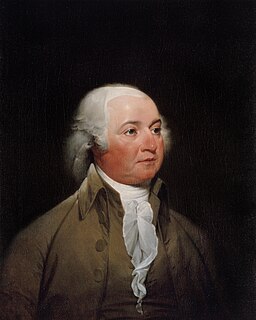
The 1796 United States presidential election was the 3rd quadrennial presidential election. It was held from Friday, November 4 to Wednesday, December 7, 1796. It was the first contested American presidential election, the first presidential election in which political parties played a dominant role, and the only presidential election in which a president and vice president were elected from opposing tickets. Incumbent Vice President John Adams of the Federalist Party defeated former Secretary of State Thomas Jefferson of the Democratic-Republican Party.
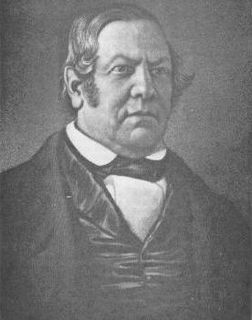
Thomas McKean Thompson McKennan was a 19th-century politician and lawyer who served briefly as United States Secretary of the Interior under President Millard Fillmore.
William Lawrence may refer to:
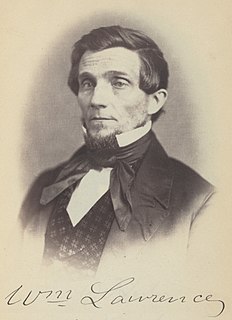
William Lawrence was a member of the United States House of Representatives from the 17th District of Ohio. Lawrence was born in Washington, Guernsey County, Ohio. He graduated from Jefferson College in Canonsburg, Pennsylvania in 1835.
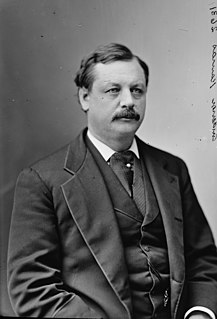
John Alexander Anderson was a six-term U.S. Representative from Kansas (1879–1891), and the second President of Kansas State Agricultural College (1873–1879).

William Henry West was a Republican Party politician in the U.S. state of Ohio who served as Ohio Attorney General from 1866 to 1868, and a member of the Ohio Supreme Court from February 1872 to 1873. His failing eyesight and powerful oration led to the title Blind Man Eloquent.

William Findley was an Irish-born farmer and politician from Westmoreland County, Pennsylvania. He served in both houses of the state legislature and represented Pennsylvania in the U.S. House from 1791 until 1799 and from 1803 to 1817. By the end of his career, he was the longest serving member of the House, and was the first to hold the honorary title "Father of the House". Findley was elected to the American Philosophical Society in 1789.

Henry Wilson Temple was a Progressive and a Republican member of the U.S. House of Representatives from Pennsylvania.
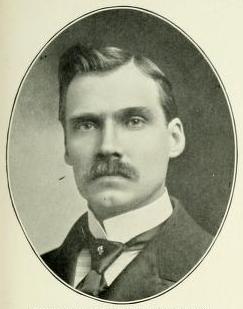
Edward Everett Robbins was a Republican member of the U.S. House of Representatives from Pennsylvania.

James Patton Anderson was an American slave owner, physician, lawyer, and politician, most notably serving as a United States Congressman from the Washington Territory, a Mississippi state legislator, and a delegate at the Florida state secession convention to withdraw from the United States. He also served in the American Civil War as a general in the Confederate States Army, serving in the Army of Tennessee.
Andrew Stewart was a member of the U.S. House of Representatives from Pennsylvania.

George Van Eman Lawrence was a Republican member of the U.S. House of Representatives from Pennsylvania.
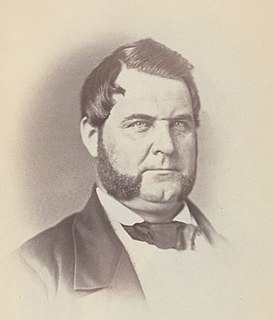
William Montgomery was a Democratic member of the U.S. House of Representatives from Pennsylvania.
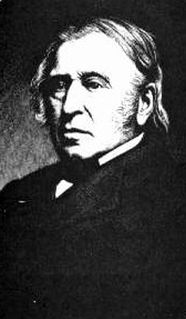
John Hoge Ewing was an American politician from Pennsylvania who served as a Whig member of the U.S. House of Representatives for Pennsylvania's 20th congressional district from 1845 to 1847.
Henry William Hoffman was a U.S. Representative from Maryland.

William Henry Mills Pusey, a banker, was a one-term Democratic U.S. Representative from Iowa's 9th congressional district in southwestern Iowa from 1883 to 1885.
John Byers Anderson was an educator, railroad contractor and United States Army officer who served in the American Civil War as a colonel and superintendent of the Union railroads in the Department of the Ohio, Department of the Tennessee and Department of the Cumberland.
William Caldwell Anderson was an American Presbyterian minister who served as the fourth president of Miami University in Oxford, Ohio.
George Chapman Caldwell was an American chemist, horticulturalist, and instructor.
References
- ↑ Eaton, Samuel John Mills; Woods, Henry (1902). "Caldwell Anderson Lawrence, William". Biographical and Historical Catalogue of Washington and Jefferson College. Philadelphia: G.H. Buchanan and Company. Retrieved 2010-02-23.
